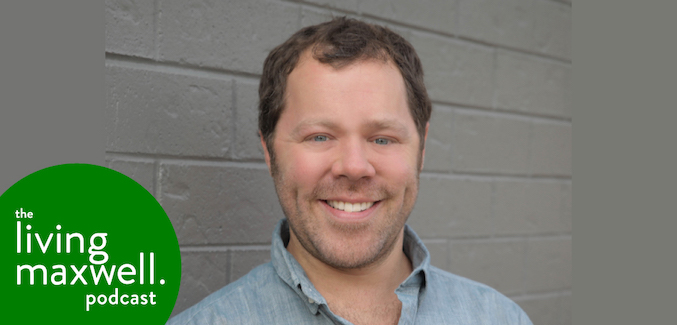
Anheuser-Busch, in support of its Michelob ULTRA Pure Gold, launches Program to Transition Barley Farmers to Organic
Anheuser-Busch is no average player in the organic food market.
After all, it is the largest brewer in the U.S. and its parent company generated over $54 billion in global sales in 2018.
With nearly unparalleled scale and resources, the company’s strategic moves in our industry can be of real significance.
Case in point was when it ran a Super Bowl ad several months ago for its organic beer Michelob ULTRA Pure Gold.
Not only was it the first commercial in the history of the Super Bowl to promote an organic product, but it essentially served as an advertising campaign for the entire organic sector.
The high-profile ad, which featured actress Zoe Kravitz, was seen by an estimated 150 million people (the total number of people who watched the Super Bowl and the Grammys, and saw the ad online).

And just yesterday, Anheuser-Busch made yet another move of real note when it announced its new ‘Contract for Change’ initiative. This program will help support American barley farmers who want to transition to organic production.
Michelob ULTRA will sign long-term, full-rotation contracts to purchase the barley grown from the beginning of the transition period through the first year of organic production. The company will purchase transitional barley at a premium price, supporting farmers during the transition window.
“The growers are really excited because this provides them a contracting option to de-risk the process of transitioning to organic,” said Azania Andrews, Vice President of Michelob ULTRA.
In addition, farmers participating in Contract for Change will benefit from the ability to sell organic crops, other than barley, that are grown in the rotation. Anheuser-Busch will not be purchasing these rotational crops directly from the farmers but will assist them in finding buyers in the marketplace, thereby creating additional revenue for the farmers.
The company worked closely with the Sustainable Food Lab to create a contract that was of maximum benefit to the farmers’ needs, and participants in the program will also have access to Anheuser-Busch’s 15 on-staff agronomists across the country. This is particularly important because growing organic barley is not known to be an easy endeavor.
The initial pilot for Contract for Change will consist of 6 farmers in Idaho, totaling 600 acres for the 2019 crop year, and the goal is to expand it from there.
With the success of Michelob ULTRA Pure Gold — sales are up 200% since the Super Bowl ad and the company said it is the #6 share gainer in the entire beer industry — Anheuser-Busch’s involvement in organic only deepened.
“When we learned more about the organic industry, we saw that organic farmers needed more opportunity,” said Azania Andrews.
WHAT IT ALL MEANS
Contract for Change is incredibly meaningful for a few reasons.
1) While Anheuser-Busch is definitely not the first to help transition farmers to organic — Kashi and Prairie Organic Spirits have established formal programs to do the same — it is the largest, with the highest profile.
With U.S. farmland comprised of less than 1% organic and no federal program offering farmers financial assistance to transition to organic, the onus has been relegated to the private sector.
Companies understand both the importance of getting more farmers to go organic and the need to build out their supply chain. Yet, waiting for the USDA to address this issue is hardly the prudent thing to do.
2) This is strong confirmation that we have reached a tipping point, in that the purchasing power of organic consumers can truly influence the business decisions at the world’s biggest food and beverage companies.
What is becoming obvious is the organic industry would greatly benefit by having some type of nationally coordinated resource center to facilitate and assist all players in the transitional process, including farmers, distributors, brands and end-users of transitional crops.
Whether this comes to fruition remains to be seen.
However, what cannot be doubted is that Anheuser-Busch’s new initiative is of tremendous significance.
——–
There may be very few people in the country who know more about selling organic food directly to consumers than Michael Joseph, the founder of three direct-to-consumer organic food companies.
His most recent startup, Green Chef, raised more than $70 million in venture capital funding and grew to become the country’s leading organic meal kit service. Last year, Green Chef was sold to Hello Fresh, a publicly traded meal kit company.
In this wide-ranging conversation on The Living Maxwell Podcast, I spoke with Michael Joseph about how Green Chef got started, the company’s incredibly rapid growth, his experience in raising tens of millions of dollars in flip flops (yes, it’s true), how the company brought unique digital marketing experience to this sector, and whether the meal kit space is actually a viable business or not.
Click HERE to learn more. Or, you can listen and subscribe to The Living Maxwell podcast on iTunes, Stitcher, Spotify, TuneIn and Google Play.
Please enjoy!

 |
With gratitude, 
Max Goldberg, Founder |
Quick Hits
* Ratana Stephens, Co-CEO and Co-Founder of Nature’s Path, was named one of the ‘Star Women in Grocery’ by the Canadian Grocer Magazine.
* Fred Haberman, Founder of both Haberman and Freak Flag Foods, was named as one of the Top 22 Conscious Business Leaders of 2019.
* Additionally, Ernst & Young announced that Pete and Gerry’s Organics was awarded the 2019 Entrepreneur Of The Year® in New England.
* Oregon State University has launched the largest, most comprehensive hemp research center in the nation.
* The Hawaii Board of Education has banned herbicides on school grounds in response to community concerns.
* On Living Maxwell, I wrote about The Organic Center’s new report which found illegal antibiotics, high levels of growth hormones and controversial pesticide contaminants in non-organic milk.
* The USDA has suspended data collection for its annual Honey Bee Colonies report.
* In a lawsuit filed by Richman Law Group, the Organic Consumers Association has sued Twinings Tea for false and misleading advertising.
* In what is billed as the world’s first healthy and organic restaurant for children, White and the Bear is set to open in Dubai.
* Rodale Institute has opened a new organic research and training center in Georgia.
* Friends of the Earth, Stroud Brewery and Toast Ale have joined forces on a new beer that is made in an organic brewery and uses unsold organic bread.
* Enrollment for Kiss the Ground’s Soil Advocate Training (online or in person) ends today.
* An organic chocolate shop from Rizek Cacao, a business from the Dominican Republic that’s been around since 1905, has opened in Brooklyn.
New Organic Products
Turmeric Love™ by Suja
Turmeric Love™ is my favorite Suja drink ever. 2 grams of sugar, fantastic taste, very addictive. It is for sale nationwide at Whole Foods Market and at select Target locations, and Kroger will carry the drink in September.
French Macarons by Duverger
Authentic French macarons by a Parisian baker, Duverger offers 12 flavors, including salted caramel, birthday cake and red velvet. The organic and gluten-free macarons are sold at select retailers across the country and come in a 12-pack variety or 3-pack grab and go.
Tonics by Herbal Revolution
Herbal Revolution is a small organic herbal company in Maine that I discovered at the Common Ground County Fair a few years ago. The company’s super-high quality tonics come in five varietals — fire, daily energy, digestive, elderberry and turmeric.
Want your product profiled here? Learn more
Weekly News Summaries

Whole Foods is Doubling Down on Local
An inside look at the recent Local Supplier Summit in Boston, where the company emphasized the importance of small and local purveyors.

After 10 Years of Rapid Growth, What Does Organic Mean Today?
By The Civil Eats Editors
Four industry veterans weigh in on how booming interest in organic food has changed the industry and what it means for farmers, policymakers and eaters.

Luxembourg may Commit to 100% Organic Farmland
By Jess Bauldry
Politicians in Luxembourg have called for all farming practices become 100% organic by 2050, a step up from the country's commitment to be 20% organic by 2025.

Patagonia Provisions is Creating Markets for Soil-Building Crops, Not the Other Way Around
By Rachel Cernansky
Managing Director Birgit Cameron explains the company's mission to demonstrate how the agri-food industry has the potential to be part of the solution to the environmental crisis.

An Unsung Hero of Organic -- John Bobbe
By Adam Belz
A well-deserved profile of John Bobbe, who has been spearheading an extremely important yet low-profile effort to fight back against fraudulent imported organic grains.

Mercaris: Less than 3% of Organic Farmland was Impacted by Floods
In its Spring Planting Special Report, Mercaris found that less than 3% of U.S. organic field crop acres were located in areas impacted by this spring's most significant flooding.

Organic Valley lays off 39 employees
By Jennifer Lu
The Wisconsin-based organic cooperative eliminated about 5% of their general and administrative positions, and approximately 950 employees remain at the company.

Are Pistachios the Nut of the Future?
By Mark Schapiro
An interesting look at why pistachios may be a better long-term choice than almonds and other nuts.

The Nue Co. raises $9M Series A
Organic food and dietary supplements company The Nue Co. announced a $9 million Series A funding round, which was led by Waldencast.
Austria is One Step Closer to Banning Glyphosate
By Francois Murphy and Alexandra Schwarz-Goerlich
Austria’s lower house of parliament passed a bill banning all uses of the super-toxic weedkiller glyphosate.

How Food Pricing Is Killing Family Farms and Regenerative Farming
An important op-ed about how we are failing farmers -- and ultimately ourselves.
The material in this newsletter is copyrighted and may be reprinted by permission only. All requests must be in writing. Please use our contact form to request republication rights.
Newsletter Archive
Quick Hits
* Ratana Stephens, Co-CEO and Co-Founder of Nature’s Path, was named one of the ‘Star Women in Grocery’ by the Canadian Grocer Magazine.
* Fred Haberman, Founder of both Haberman and Freak Flag Foods, was named as one of the Top 22 Conscious Business Leaders of 2019.
* Additionally, Ernst & Young announced that Pete and Gerry’s Organics was awarded the 2019 Entrepreneur Of The Year® in New England.
* Oregon State University has launched the largest, most comprehensive hemp research center in the nation.
* The Hawaii Board of Education has banned herbicides on school grounds in response to community concerns.
* On Living Maxwell, I wrote about The Organic Center’s new report which found illegal antibiotics, high levels of growth hormones and controversial pesticide contaminants in non-organic milk.
* The USDA has suspended data collection for its annual Honey Bee Colonies report.
* In a lawsuit filed by Richman Law Group, the Organic Consumers Association has sued Twinings Tea for false and misleading advertising.
* In what is billed as the world’s first healthy and organic restaurant for children, White and the Bear is set to open in Dubai.
* Rodale Institute has opened a new organic research and training center in Georgia.
* Friends of the Earth, Stroud Brewery and Toast Ale have joined forces on a new beer that is made in an organic brewery and uses unsold organic bread.
* Enrollment for Kiss the Ground’s Soil Advocate Training (online or in person) ends today.
* An organic chocolate shop from Rizek Cacao, a business from the Dominican Republic that’s been around since 1905, has opened in Brooklyn.



